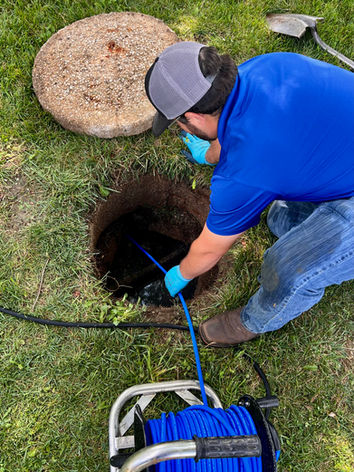top of page
FAQ
Looking for some answers on your septic system?
Check below to see if we can answer some of your commonly asked questions. We aim to educate our customers on how to keep a healthy, working septic system to maximize duration between pump outs. If you have any questions, contact us and we will be glad to help!

How Often Should I Pump My Septic Tank?
The frequency that you need to pump your tank depends on the size of your tank and the number of occupants in your house. Typically, we recommend pumping it every 3-5 years. For example, a family of 5 with a 1,500 gallon tank should be pumped every 5 years.
Why Should I Pump My Septic Tank?
Your septic tank works as a trap catching all the water and solids that go down your drains. If not emptied, this trap (tank) will eventually fill with solids causing them to be sent through your tank and into your leach bed. The solids will plug the perforation in your pipes not allowing it to leach properly and will eventually lead to back ups in your house. When septic systems get to this point they will often need to be replaced, which ends up being a much higher cost than routine maintenance pumping.
What Is A Septic System & How Does It Work?
Every time you flush the toilet, take a shower, do laundry, or wash the dishes, the water and waste exits your house and enters your septic tank. The septic tank is made of concrete or plastic and the average residential tank ranges from 500 gallons to 2,000 gallons. As the solids and wastewater enter the tank, bacterial enzymes begin breaking it down and separating it into layers - the scum layer, greywater, and sludge layer. The scum layer is the organic matter that floats on top and is waiting to be decomposed. When it decomposes it falls to the bottom of the tank and creates your sludge layer. In between the 2 layers is what we call greywater, which exits your tank thru your outlet line into your leech bed or mound system.
What Is A Leach Bed?
A leach bed (or drain field) is a series of perforated pipes or chambers buried in trenches underground that distribute your tank's wastewater into the soil. The trenches are filled with gravel and soil which contain beneficial bacteria to break down the remaining contaminants in the greywater and naturally purify it before it reaches groundwater.
bottom of page




